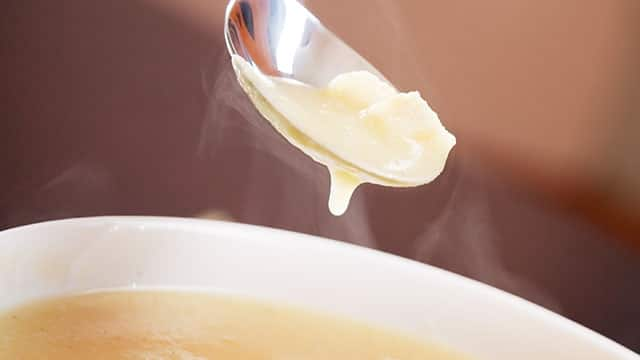What Causes a Loss of Taste?
Recently, if you've heard about people losing their sense of taste, it's most likely related to COVID-19. The Centers for Disease Control and Prevention has listed the new loss of taste and smell as a symptom of COVID-19. If you're experiencing a sudden loss of taste alongside other COVID-19 symptoms, contact your healthcare provider as soon as possible.
That said, many other factors can cause a loss of taste, like cigarette smoking and increased age. Did you know that most people have about 10,000 taste buds? According to MedlinePlus, this number decreases as you age, and each taste bud that remains also begins to shrink. Sensitivity to the five tastes (sweet, salty, sour, bitter, and umami) typically declines after age 60. You might also experience dry mouth because your mouth produces less saliva as you age. Dry mouth can also affect your sense of taste.
Most people develop taste disorders after illness or injury, although some people are born with them. Common reasons for a loss of taste include the following:
- Dental problems or poor oral hygiene
- Flu and the common cold
- Strep throat and pharyngitis
- Salivary gland and nasal infections
- Middle ear and upper respiratory infections
- Head injuries
- Exposure to certain chemicals or medications
- Radiation therapy to treat cancers of the head and neck
- Wisdom tooth extractions
- Some surgeries to the ear, nose, and throat (such a middle ear surgery)
The National Institute on Deafness and Other Communication Disorders (NIDCD) has found that most people who think they have a taste disorder might actually have a problem with smell. Chewing food releases aromas that activate your sense of smell by way of a channel that links the roof of your throat to your nose. If this channel is blocked, odors can't reach your nose, resulting in foods tasting bland or feeling like there's no taste in your mouth.
Loss of Taste Treatment
Since there are so many different things that can cause a loss of taste, it's helpful to determine the cause before receiving treatment. As loss of taste could indicate a health problem, there's even more reason to figure out its cause before jumping to a treatment plan. That's where an otolaryngologist (also called an ENT) comes into play. They will assess your taste loss with a physical examination of your ears, nose, throat, a dental examination, and a taste test.
If the loss of taste is connected to an illness, such as a respiratory infection, you should regain your sense of taste once the condition is resolved. If a particular medication is the cause, your doctor may recommend that you switch that medication to something else.
If you've lost your sense of taste, you can do the following to make food taste better:
- Prepare foods that have a variety of textures or colors.
- Avoid combination foods, like casseroles, that don't highlight individual flavors.
- Use spices or aromatic herbs, but don't add more sugar or salt to your food.
Improving and maintaining good oral care is another vital thing you can do to treat taste loss. Schedule regular cleanings with your dentist or dental hygienist and adopt a good oral care routine. This should include brushing your teeth twice a day and cleaning between your teeth with floss or another interdental cleaner.
It's normal to feel concerned that you feel like there's no taste in your mouth when eating something. Food adds much enrichment to our lives, so it can be unsettling if you're suddenly experiencing taste loss. If you've lost your sense of taste, it's important to find out what's causing it. And whether or not you regain your taste sensations, don't forget that you can still find ways to enjoy savor food!
Oral Care Center articles are reviewed by an oral health medical professional. This information is for educational purposes only. This content is not intended to be a substitute for professional medical advice, diagnosis or treatment. Always seek the advice of your dentist, physician or other qualified healthcare provider.
ORAL HEALTH QUIZ
What's behind your smile?
Take our Oral Health assessment to get the most from your oral care routine
ORAL HEALTH QUIZ
What's behind your smile?
Take our Oral Health assessment to get the most from your oral care routine














